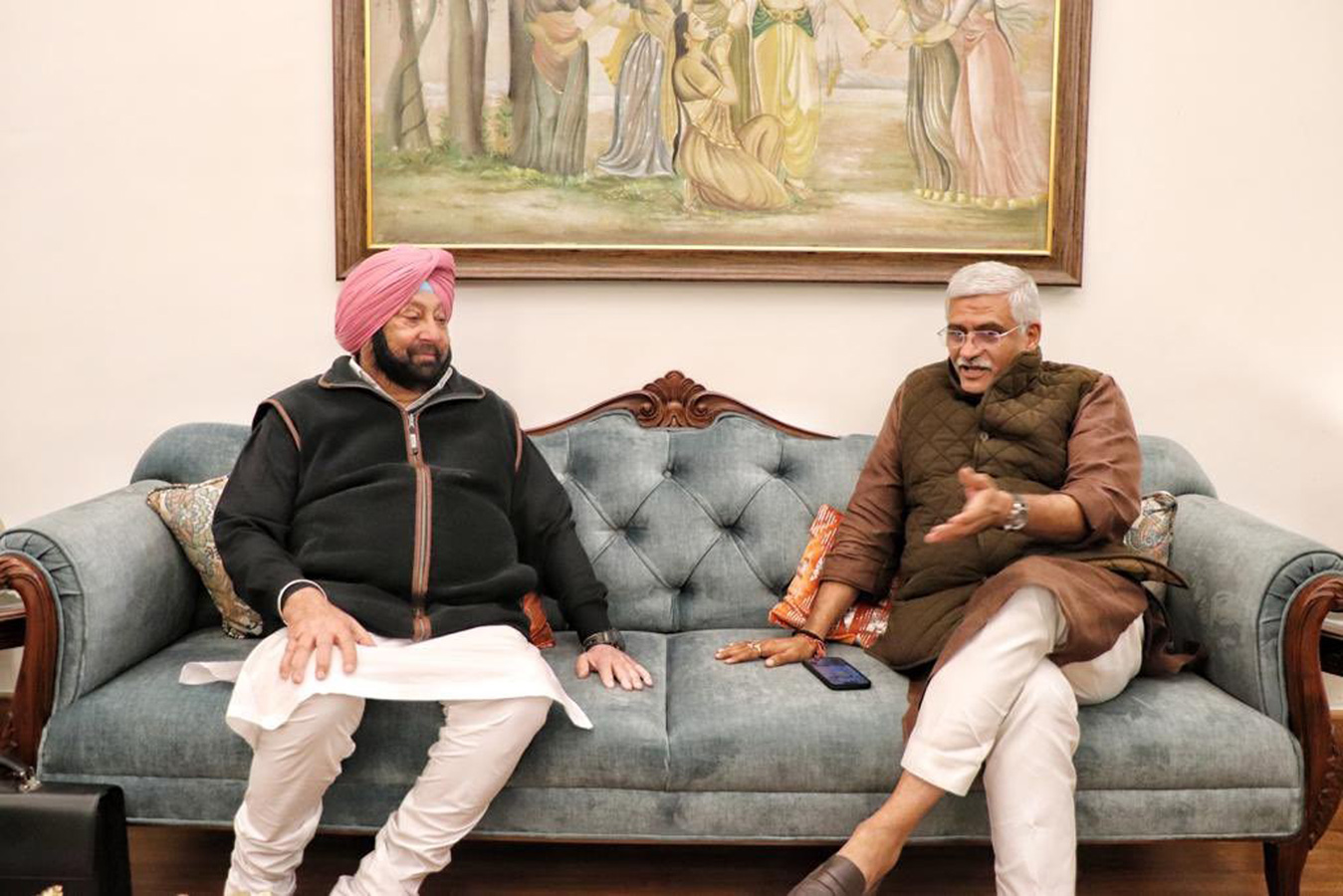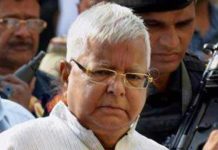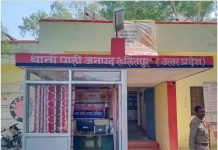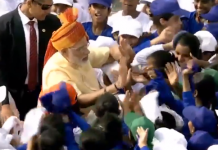
With Amarinder Singh’s Punjab Lok Congress firming up a tie-up with BJP, decks have been cleared for a four-cornered fight with AAP, Congress and SAD-BSP being the other three contenders
Post-repeal of farm laws, the BJP is aggressively pushing a Punjab plan. While it is poaching leaders from AAP, Congress and Akali Dal, a pre-poll tie-up with former Chief Minister, Capt Amarinder Singh-led Punjab Lok Congress has given the party a blinker of hope. However, the State is headed for a quadrangular contest for the first time and that is sure to keep all parties on the tenterhooks and guessing.
In a major development, Amarinder Singh called on the BJP’s Punjab in-charge, Union minister Gajendra Shekhawat, at his Delhi residence after an earlier meeting in Punjab and the two announced the alliance ahead of assembly elections due in a few months. Shekhawat said the details of seat-sharing will be announced at an “appropriate time” and Singh quipped, “The alliance will definitely, 101 per cent win the elections. And winnability will be the main criterion in finalising seats.”
According to a senior BJP leader, the party will be the bigger partner in the seat-sharing arrangement and could contest at least 60-70 seats. What gives BJP a ray of hope in Punjab is an alliance with Amarinder Singh and a likely alliance with Sukhdev Dhindsa and Ranjit Singh Barhampura led Akali Dal faction. However, a major challenge before the BJP in Punjab would be the absence of pan-state presence. When the party had a tie-up with Shiromani Akali Dal, the BJP was a smaller partner and a major chunk of seats always went to the Akali Dal. During the 2017 elections, the BJP and the Shiromani Akali Dal contested on a seat-sharing formula in which the Akali Dal contested on 94 seats and the BJP on 23. It was during the farmers’ agitation against the three farm laws that the Akali Dal, one of the oldest alliance partners in NDA, decided to break away.
The BJP would also harp on brand Modi which is still strong among many people despite anger amongst farmers and their families. The BJP feels that the anger would subside with the passage of time with the repeal of three contentious laws. The decision has given enough impetus to the BJP to make inroads in the State ahead of the Assembly poll, due in early 2022.
It is a known fact that the Shiromani Akali Dal is considered a ‘Panthic’ party and as the BJP in the past continued to contest with this party, the Hindu voters had kept away from the BJP. The BJP think tank is of the view that the party can win over these voters as polarisation is taking place in the State.
With Punjab Congress president Navjot Singh Sidhu primarily focusing on issues concerning the ‘Panthic’ votes including his initiative to start the Kartarpur corridor, which connects the Kartarpur Sahib gurdwara in Pakistan, the Congress may end up losing the substantial support of the Hindu vote bank.
Little doubt that Sidhu has recently announced to launch an Urban Employment Guarantee Mission to give the right to employment to urban labour if his party retains power in the upcoming state elections. He has opined that this mission would be started on the lines of the Mahatma Gandhi National Rural Employment Guarantee Scheme (MGNREGS), a centrally sponsored scheme, to give employment to the urban poor, particularly unskilled labour, in towns and cities of the state. He has gone on to say that “Urban poverty is double the rural poverty in the state. Besides giving right to employment, we will also fix the daily wage and regulate work hours.”
Calling his “revolutionary” idea as the USP (unique selling proposition) of his “Punjab model” of governance, the state Congress chief said this idea would change the lives of the urban poor”. Clearly, the idea is to woo voters from urban areas which BJP is trying to tap. Also after the exit of Amarinder Singh, Congress is trying to pursue non-Jat Sikh politics and it suits chief minister, Charnjit Singh Channi, the first Dalit CM of Punjab, the most. However, confused leadership and flip-flops by party president in Punjab, Navjot Singh Sidhu has made the situation complex for the party in power in Punjab. There is still confusion as to on whom party high command is hedging as the CM face – Channi or Sidhu while the suave senior leader, Sunil Jakhar has been “ignored” though he has been asked to head the campaign. The recent sacrilege incidents at Golden Temple Amritsar and at Kapurthala have put the present Congress regime in a tight spot. Registration of an FIR against Akali Dal leader and former Minister Bikram Singh Majithia has created bitterness between ruling Congress in Punjab and Shiromani Akali Dal. Majithia is brother in law of Akali Dal President Sukhbir Singh Badal and brother of former Union Minister Harsimrat Kaur Badal.
Punjab has about 563 km of international border with Pakistan comprising districts of Gurdaspur, Amritsar, Tarn Taran and Ferozepur. The narrative of “nationalism”, which suits BJP as well as Capt. Amarinder Singh can work with a section of voters. However, it would be too early to predict if the BJP and Amarinder Singh’s party together can upset the electoral calculations of the ruling Congress and the Shiromani Akali Dal.
Interestingly political observers do not rule out the Shiromani Akali Dal supporting BJP and Amarinder Singh so that together they could muster a majority to form a government in Punjab. Indeed this could upset the applecart of both Aam Aadmi Party and Congress and make going tough for them. The situation will unfold in the coming few days once the Congress and AAP decide on their candidates as disgruntled leaders could join hands with Capt. Amarinder to be spoilsport for AAP and Congress.
As at present, Punjab’s first Dalit chief minister, Charanjit Channi, is trying to pull in the Dalit votes. He has announced several freebies but big political issues like sacrilege and drugs continue to dog political parties.
The exodus of AAP MLAs has dented the party’s campaign in the run up to the polls. But anti-incumbency against the Congress and disenchantment towards Akali Dal can make AAP a natural choice in various parts of the state. The infighting in the Congress could benefit AAP, as many voters see AAP as a natural alternative. Even during the last elections to State Assembly in 2017, AAP had emerged as second largest party relegating Akali Dal to third spot.
Coming to the Akali Dal, party patron and five times chief minister, Parkash Singh Badal is actively campaigning even in this election. The party president and former deputy chief minister, Sukhbir Singh Badal and his wife and former union minister, Harsimrat Kaur Badal are also aggressively campaigning to woo voters.
With all-round confusion going on, the Haryana-based farmer leader Gurnam Singh Chaduni has announced the launch of his own political party, announcing that he would contest all the 117 seats in the Punjab Assembly elections. Chaduni promised that his Sanyukt Sangharsh Party would be “secular”, and work for all sections of society, unlike current political leaders whom he accused of “framing policies in favour of capitalists”. Chaduni said that he was “neither a CM face nor would contest polls in Punjab”. “I stand by my ideology that farmers and mazdoor (labourers) should contest polls.”
Soon after Chaduni’s announcement, Punjab’s 32 farmer unions held a meeting to discuss participation in the polls, but could not reach a decision. The BKU (Ugrahan), the largest of the unions, stayed away, as it had announced earlier, saying it wanted to focus on farmer issues and did not want anything to do with politics. Balbir Singh Rajewal, president of the BKU (Rajewal) and a prominent SKM face, denied rumours that he had been approached by the AAP. On a visit to meet the Shahi Imam of Ludhiana’s Jama Masjid, Rajewal said, “I came here to thank Shahi Imam and the entire Muslim community for supporting the Kisan Andolan.” Harinder Singh Lakhowal, said they would follow SKM’s decision though BKU (Lakhowal) has been associated with the Akali Dal in the past.













